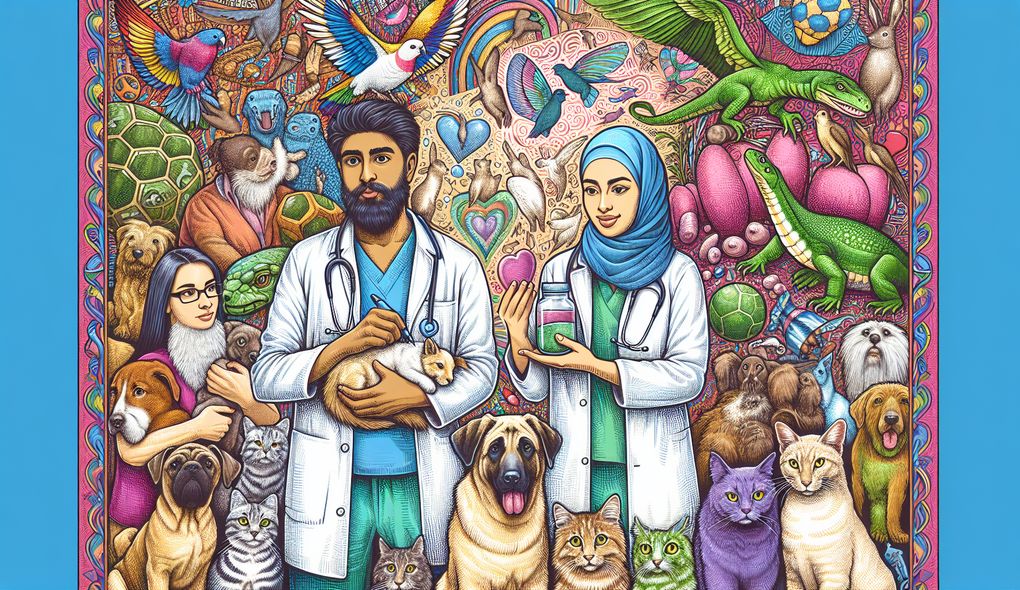How do you ensure that your research complies with ethical regulations and animal welfare standards?
SENIOR LEVEL

Sample answer to the question:
When conducting research, I always prioritize ethical regulations and animal welfare standards. I ensure compliance by following established guidelines and protocols set by regulatory bodies. For example, I obtain proper approvals from the Institutional Animal Care and Use Committee (IACUC) before starting any animal research. I also implement measures to minimize the number of animals used and reduce any potential distress. Additionally, I maintain detailed records of all procedures and ensure the appropriate care, housing, and handling of animals. Regular training and education on ethical practices help me stay informed about current standards and guidelines for animal research.
Here is a more solid answer:
In my research, I am deeply committed to upholding ethical regulations and animal welfare standards. I actively engage with the Institutional Animal Care and Use Committee (IACUC) to obtain necessary approvals and ensure compliance with regulations. For instance, I carefully design my studies to minimize the use of animals and employ alternative methods whenever possible, such as in vitro models or simulation techniques. I maintain meticulous records of all procedures, providing detailed documentation to ensure transparency and accountability. Additionally, I prioritize the well-being of animals by providing appropriate housing, enrichment, and veterinary care. To stay up-to-date with evolving guidelines, I regularly attend conferences and workshops on animal welfare and ethics. By integrating these practices into my research, I am confident in my ability to meet the highest standards of ethical conduct and animal welfare in my work.
Why is this a more solid answer?
The solid answer expands on the basic answer by providing specific examples of how the candidate ensures compliance with ethical regulations and animal welfare standards. It demonstrates a deep understanding of the relevant regulatory frameworks and emphasizes the candidate's commitment to minimizing animal use and prioritizing animal well-being. The solid answer could be further improved by discussing any relevant certifications or training the candidate has obtained in this area.
An example of a exceptional answer:
As a diligent researcher, I make it a priority to ensure that my research complies with the highest ethical regulations and animal welfare standards. I have a thorough understanding of the ethical frameworks governing veterinary research and adhere to all relevant guidelines and regulations. To ensure compliance, I have obtained certifications in animal care and ethical research, such as the American Association for Laboratory Animal Science (AALAS) certification. In my research, I integrate the principles of the 3Rs - Replacement, Reduction, and Refinement. I actively seek alternative methods to minimize animal use, such as utilizing in vitro models or computational simulations whenever appropriate. Additionally, I collaborate with experts in veterinary ethics within and outside my organization, participating in discussions and workshops to continuously improve my ethical practices. I maintain open communication with the Institutional Animal Care and Use Committee (IACUC), seeking their input and guidance throughout my research. By combining my knowledge, expertise, and a genuine dedication to animal welfare, I can confidently ensure that my research meets the highest ethical standards and promotes the well-being of animals.
Why is this an exceptional answer?
The exceptional answer goes above and beyond by highlighting the candidate's extensive certifications and training in animal care and ethical research. It demonstrates an exceptional commitment to ethical conduct by incorporating the principles of the 3Rs and seeking collaboration with experts in veterinary ethics. The answer also emphasizes the candidate's dedication to open communication and continuous improvement. Overall, the exceptional answer showcases the candidate's comprehensive understanding of ethical regulations and animal welfare standards, making it clear that they are well-equipped to prioritize these principles in their research.
How to prepare for this question:
- Familiarize yourself with relevant ethical guidelines and regulations, such as those provided by the American Veterinary Medical Association (AVMA) and the International Association for the Study of Pain (IASP).
- Obtain certifications or training in animal care and ethical research, such as AALAS certification or courses on animal welfare.
- Stay updated on the latest advancements and debates in veterinary ethics by attending conferences and workshops.
- Seek opportunities to collaborate with experts in veterinary ethics and engage in discussions to enhance your understanding.
- Be prepared to provide specific examples of how you have ensured compliance with ethical regulations and animal welfare standards in your previous research projects.
- Highlight any experience you have with alternative methods or technologies that minimize animal use, such as in vitro models or computational simulations.
What are interviewers evaluating with this question?
- Ethical Compliance
- Animal Welfare
- Regulatory Guidelines

